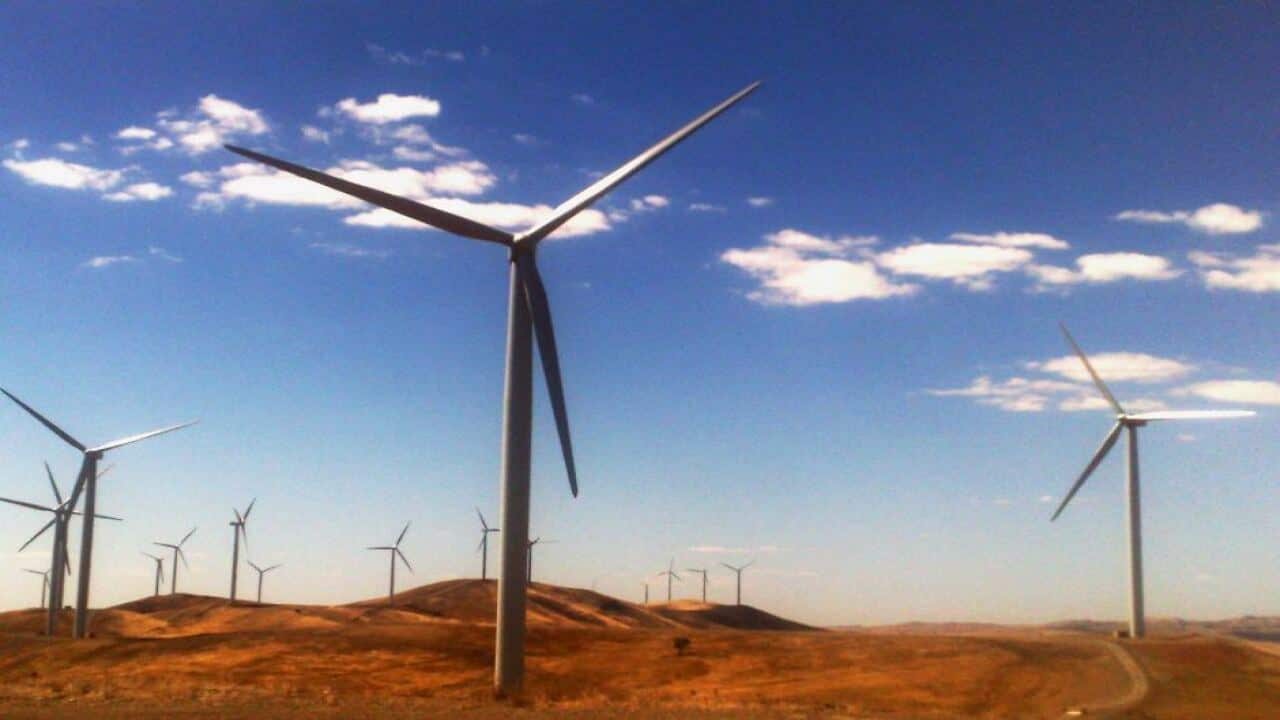Up to 11,000 jobs in Australia’s renewable energy sector could be lost over the next two years if no additional policies are introduced by the Morrison government, a new report has found.
Modelling from the University of Technology Sydney looked at several scenarios that predicted a reduction of jobs in the industry.
The modelling also examined scenarios that increased employment and reduced electricity costs across Australia.
According to its worst-case scenario - what would happen if there was no change in government policy - the number of people employed in renewable energy would fall from roughly 26,000 people to 15,000 by 2022.
The research was commissioned by The Clean Energy Council, which has called the findings “quite worrying”.
“It’d be a real tragedy if there were 11,000 jobs lost in the industry,” said chief executive Kane Thornton.
“We think this industry is critically important to the future of Australia. Clearly, every country in the world is transitioning away from fossil fuels towards to renewable energy. Australia (is) on a path to doing that - we’ve had record levels of investment in renewables over the past few years, but we need a strong industry and a healthy workforce to deliver that.
“And so if there was to be a stalling of momentum, if we were to lose thousands of jobs, then that would be a real disaster. It would be a real hit to the industry and make the task of transitioning Australia so much more difficult.”
'Stalling of momentum' and the RET
Mr Thornton believes such a disaster would impact all Australians - from electricity costs, to large-scale employment in regional areas.
“Many of the jobs in the industry are actually in rural or regional parts of the country, so these jobs are really important to some of these regional communities who have been doing it tough. Indeed they were doing it tough from bushfires and floods, and now of course COVID-19.”
Aside from greater investment, industry groups are calling for a replacement to the national renewable energy target, in an effort to reinvigorate the economy post coronavirus. The target, which required energy companies to source 23 per cent of electricity from renewables, was met last year but has yet to be updated.
“What we really need to do is have a plan, a plan between now and 2030 to substantially transition our energy sector to be driven by renewable energy,” said Smart Energy Council chief executive John Grimes.
“There is no longer any driving mechanism to continue to build large-scale renewables in Australia, and there’s a very ad-hoc plan in terms of how any renewables that are built, will be connected to the grid. So particularly worried about that.”
“We’ve got a unique window of opportunity to reinvigorate the economy post-COVID-19 and to have a plan to transition to a low-carbon future at the same time. We know that renewables are cheaper than other forms of electricity, so by doing this we’ll actually reduce electricity prices and make our whole economy more competitive.”
'A suite of options'
The research also looked at several other scenarios to bolster renewable energy employment, including one scenario which saw jobs increase to 45,000 by the year 2025.
“There’s a suite of options, really, for the government,” Mr Thornton said.
“What we’d like to see is further investment in the grid, we’d like to see the acceleration and bringing forward new connections between different states and different parts of the country to support a stronger grid, because that would in turn allow more renewable energy to come online.”
Renewable energy has long been a source of political division in Australia, and finding bipartisan support towards an agreed renewable energy target has been elusive.
Mr Thornton said there have been small signs the tide is changing.
“The Morrison government last week set out a priority list of projects it would be bringing forward, and that included the connection between mainland Australia and Tasmania as one of those projects,” he said.
“While opposition leader Anthony Albanese this week called for bipartisanship on the issue (of renewable energy).”
'An act of political will'
But Mr Grimes remains sceptical of any long-term changes being made unless there is a major shakeup to the status quo.
“Unfortunately, to change the federal government’s view on this will ultimately need an act of political will from the people of Australia,” he told SBS News.
“The coalition federal government is absolutely committed to maintaining and supporting and strengthening fossil fuel assets for as long as humanly possibly.
"Australia is the Saudi Arabia of coal, and our government is like the tobacco executives of the 1970s, who knew in their hearts that change was going to come, but wanted to hang on for as long as possible to wring every extra dollar out of the system.
“While ever they have that view, I don’t think that a bipartisan approach is even remotely possible.”
SBS contacted the office of Energy Minister Angus Taylor for comment, but received no response by the time of publication.


